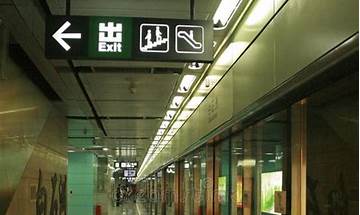"From August 1 ST, the four-day work system will be implemented!"

Author | Anonymous
Source | Network
On May 31, Feng Xuewei, the company where Zhang Xuefeng, a famous postgraduate in online celebrity, was located, announced:
Its company "Fengxue Weilai" will implement a four-day working week from August 1st.
That is to say, the rest system of "one day off on the second day of school, two days off on the second day of school", on the basis of ensuring the legal rest on Saturday and Sunday, also takes a rest every Wednesday.
The most important thing is that wages and benefits remain unchanged.
For this matter, its company staff also responded:
Four days off and three days off are not short-term adjustments, but will be implemented for a long time.
The salary will not change, and the company also has winter and summer vacations.
Are you sour? I am sour anyway.
Zhang Xuefeng's company is not an exception.
In March last year, Ctrip, a travel platform, launched a "3+2" mixed office system, that is, working in the unit for 3 days and working at home for 2 days.
Later, two start-up companies in Changsha and Wenzhou successively announced that the topic of "doing four breaks and three days" and four-day work system frequently boarded hot searches.
However, for most migrant workers, the four-day work system still seems like an unreachable dream.
In fact, although day five has been implemented for nearly 30 years, many companies have not yet put their weekends in place.
The "996" with longer working hours is called "the blessing" by some people.
According to the data of the National Bureau of Statistics, in April, the average weekly working hours of employees in enterprises nationwide were 46.4 hours.
If calculated according to the working hours of 8 hours a day, it is equivalent to the national migrant workers working an average of 5.8 days a week.
In the international community, there has always been a saying by Wang Yi, one of the three largest volumes in Asia: Japanese people don't eat, Koreans don't sleep, and China people don't have holidays.
But in fact, the Japanese eat, but they eat a little.
Koreans sleep, too, only for a short time.
But China people are the only ones, and they really don't have holidays.
According to a survey data, the average daily leisure time of China people is only 2.27 hours.
Residents in the first-tier cities in the north, Guangzhou and Shenzhen have less leisure time, with Shenzhen, the lowest city, having only 1.94 hours per day.
I have to say, in terms of working hours, if China people are ranked second, it is estimated that no one in the world dares to be ranked first.
It is better to do well in four days than to fish in five days.
In April 2023, the news that a company in Changsha implemented a four-day working system caused a heated discussion among netizens.
The name of this company is "Wednesday off" Culture Media Co., Ltd.
Zhu Tianci, the founder, announced from the first day of the company that all employees can take paid vacations every Wednesday except weekends.
Zhu Tianci said that what prompted him to make this decision was his first failed experience in starting a business.
That company is an MCN organization, which mainly does channel promotion business for film and television, variety and animation.
The job that should need the most creative inspiration is dead at every meeting.
Employees were exhausted, the team lacked communication, and various minor contradictions accumulated over time, and the company finally failed to persist.
By chance, one day, Zhu Tianci brushed the news reports of the four-day work system abroad, and the benefits seemed numerous:
Improve productivity, increase employee well-being, reduce turnover rate, reduce unemployment, and improve work-life balance ...
He decided to give it a try.
After the establishment of the new company, he encouraged everyone to take a vacation on Wednesday, or surf the Internet, or go out to play.
Just fill in what you see and find interesting in the online document.
The notice attracted unexpected attention.
In just one day, thousands of people consulted for recruitment information, and Zhu Tianci's mobile phone kept getting calls.
Research and practice at home and abroad just show that shortening working hours is helpful to improve labor productivity.
The improvement of the efficiency of the four-day working system also shows that the efficiency of the past six-day and five-day working systems is not good.
As early as 1986, the "Working Hours Shortening Task Force" of the State Science and Technology Commission found that most units worked 48 hours a week at that time, but the effective time was less than 30 hours.
It is common to arrive late and leave early, read newspapers at work and knit sweaters.
"Shortening working hours is actually reducing redundant working hours."
Wu Xin, former deputy director of the Social Development Research Office of the Research Center of the State Science and Technology Commission, said.
He was an important member of the "Working Hours Shortening Task Force" in 1986, and participated in the decision-making process of changing the six-day working system from China to day five.
Wu Xin pointed out that "involution" of private enterprises today and "loafing" of state-owned enterprises in those days are both the proportion of time invested in "effective labor" and "nominal labor" from the perspective of labor economics.
The way ahead is long and has no ending
For a long time, the work ethics of diligence, struggle and obedience seems to have been integrated into the blood of migrant workers in East Asia.
Kos, the Nobel Prize winner, once marveled in "Changing China": China people's diligence amazed and shamed the world, even a little scared.
In the past, Zhu Tianci also believed that employees must work very hard and experience tempering to grow up and gain the trust and promotion of the company.
After reviewing the failed experience of starting a business last year, he felt that he had gone into a misunderstanding:
I just want to make money by doing business, and I don't think from the perspective of employees, especially young employees.
"Times have changed," said Zhu Tianci, whose 98% employees are post-00 generation.
"Society should have given them a more open and inclusive environment. Why should we hone them for no reason and let them add meaningless classes?"
However, it is still unknown whether the four-day work system can be promoted in many industries.
For teachers and administrators, the four-day working week is not realistic.
For the traditional manufacturing industry, the transformation is also very difficult.
In 2020, the Ministry of Human Resources and Social Security clearly pointed out in response to the suggestions of NPC deputies:
The standard of further shortening working hours has no realistic basis and should not be widely implemented in enterprises.
To further shorten the standard of legal working hours in China, we need to take economic development, scientific and technological progress and the improvement of productivity level as the basis, and fully consider the level of social and economic development and the affordability of enterprises in China.
Under the current economic situation, shortening working hours will increase the pressure on enterprises' production and operation, bring higher employment costs and burdens, and affect economic development.
Experience in many countries shows that the jobs brought about by shortening working hours are more part-time jobs than full-time jobs, and the income of part-time workers often has a great relationship with working hours.
According to the data of the Ministry of Human Resources and Social Security, the number of flexible employees in China has reached 200 million, accounting for nearly one-seventh of the total population.
However, for blue-collar workers and flexible employees who lack labor security, it is often the hardest for them to benefit from the four-day working week. Shortening working hours may aggravate employment inequality.
Even if the four-day work is made into law, it is only a part of the statutory labor protection.
If the labor input required by the enterprise remains unchanged, the actual working hours can still be five days or even 996. The difference lies in whether to pay overtime for the overtime hours.
Regrettably, since the implementation of the 40-hour working system in 1995, many people have still been excluded from this policy.
The saying "996 at work, sick in ICU" has also made more people realize that the rapid growth of Internet enterprises in China in the past decade is inseparable from the lack of labor security system, which is obviously unsustainable.
In addition, it is also very difficult to carry out the reform of working hours system nationwide.
For private enterprises, doing four breaks and three breaks is definitely a negative gain in the short term.
On the other hand, different enterprises will also influence each other. "The same supply chain, you are upstream and downstream, and the boss must also have social pressure."
In the 1990s, we also tried various ways to operate for five and a half days, every other five days, four shifts and three shifts, and let everyone see the effect on the premise of ensuring the operation of the enterprise, before we fully pushed day five.
At present, the time for implementing the four-day work system reform in China is not yet ripe, and a few companies that "do four breaks and three breaks" are more like a spontaneous "pilot".
Click [Watching], wishing that "doing four breaks and three breaks" is no longer a dream.
WeChat official account's "Li Xiaotuo's Long Talk" companionship is the longest-lasting confession, which makes us accompany for a long time.
Declaration: All article resources on this website, unless otherwise specified or labeled, are collected from online resources. If the content on this website infringes on the legitimate rights and interests of the original author, you can contact this website to delete it.






